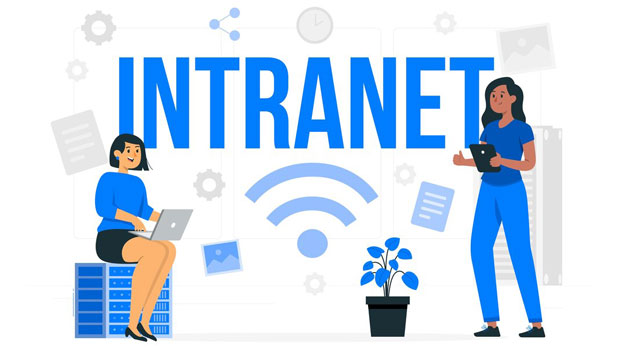When it comes to the world of proxies, especially sock s5 proxies, understanding their functionality and potential integration with various platforms is crucial for developers and businesses alike. In particular, one question often arises: Does PYPROXY’s socks5 proxy support API interface calls? In this article, we’ll provide an in-depth analysis of PyProxy’s SOCKS5 proxy capabilities, focusing on its ability to work seamlessly with API calls, exploring its features, limitations, and practical applications. 1. Understanding SOCKS5 Proxy ProtocolBefore diving into the specifics of PyProxy’s implementation of SOCKS5, it’s essential to understand what SOCKS5 is and how it operates. SOCKS (Socket Secure) is a protocol designed to route network traffic through a proxy server. SOCKS5, the latest version of this protocol, offers enhanced features such as authentication and support for various protocols like TCP and UDP.One of the key features of SOCKS5 is its ability to handle a wide variety of network traffic, including HTTP, FTP, and even email protocols. Unlike HTTP proxies, SOCKS5 proxies do not require a specific protocol to function, making them versatile and useful for numerous use cases, particularly for developers looking to route traffic securely through firewalls or geo-restricted networks.2. PyProxy: An OverviewPyProxy is a Python-based proxy server that supports a variety of proxy protocols, including SOCKS5. This library allows users to easily set up and manage proxy connections, offering several features such as authentication, IP rotation, and support for both SOCKS4 and SOCKS5 proxies. For developers, PyProxy provides a simple yet powerful interface to integrate proxy services into their applications.While PyProxy is not the only proxy server available, its simplicity and compatibility with different protocols make it a popular choice for developers looking to handle network traffic more efficiently.3. Does PyProxy’s SOCKS5 Support API Calls?When asking whether PyProxy’s SOCKS5 proxy supports API calls, we need to consider several factors, including the nature of API calls, the type of network traffic involved, and how PyProxy handles such requests.In general, an API call is a request made by one application to another through a set of predefined protocols (typically HTTP or HTTPS). These requests are usually made using specific headers and methods (such as GET, POST, etc.) to interact with an external service or server.SOCKS5 proxies, in their essence, do not differentiate between various types of network traffic—they simply route packets between the client and the destination. This includes API calls, whether they are HTTP, WebSocket, or other types of traffic. Therefore, as long as the communication method is supported by the underlying application (in this case, PyProxy), it is entirely feasible to route API calls through a SOCKS5 proxy.4. Practical Application of PyProxy for API CallsIn practice, using PyProxy’s SOCKS5 proxy for API calls can be highly beneficial in various scenarios:4.1 Secure API CallsAPI calls often involve sending sensitive data across the network, making security a top priority. By using a SOCKS5 proxy with PyProxy, developers can route API requests through a secure, anonymized connection. This can be particularly useful when dealing with sensitive information such as user credentials or private data.4.2 Circumventing Geo-RestrictionsMany APIs impose geo-restrictions, meaning they can only be accessed from specific countries or regions. By utilizing a SOCKS5 proxy, developers can bypass these restrictions by routing API calls through proxy servers located in different regions, providing them with access to a wider range of APIs.4.3 Load Balancing and IP RotationSome API providers have rate limits or restrictions based on IP addresses. With PyProxy’s SOCKS5 proxy, developers can rotate IP addresses or use load balancing techniques to distribute API calls across multiple proxy servers. This not only helps avoid rate limit issues but also enhances the reliability and scalability of API integrations.5. Key Features of PyProxy for API Call IntegrationTo understand how PyProxy enhances API call functionality, we’ll look at some of its key features that make it suitable for routing API requests:5.1 Multi-Protocol SupportAs mentioned earlier, PyProxy supports both SOCKS4 and SOCKS5 protocols, which means it can handle a wide range of network traffic types. This multi-protocol support ensures that regardless of whether the API uses HTTP, HTTPS, or other protocols, PyProxy can efficiently route the traffic.5.2 Authentication SupportFor secure API integrations, authentication is often required. PyProxy supports proxy authentication, allowing users to integrate secure proxies into their applications when making API calls. This adds an extra layer of security when connecting to external services.5.3 Simple Python IntegrationPyProxy is a Python-based solution, which makes it easy for developers to integrate into Python-based applications. Using the library to route API calls through a SOCKS5 proxy is straightforward, with clear documentation and examples available for developers to get started.6. Limitations and ConsiderationsWhile PyProxy’s SOCKS5 proxy offers a wealth of features, there are some limitations and considerations to keep in mind when using it for API calls.6.1 Performance OverheadUsing a proxy server typically adds some performance overhead, as requests must first be routed through the proxy before reaching the destination. This can result in slightly slower response times for API calls, particularly when using proxy servers that are geographically distant.6.2 Proxy ReliabilityThe reliability of the SOCKS5 proxy depends heavily on the stability and uptime of the proxy server. If the proxy server goes down, API calls will fail, making it important to use reliable proxies or consider using multiple proxies for redundancy.7. Conclusion: Is PyProxy’s SOCKS5 Proxy Suitable for API Calls?In conclusion, PyProxy’s SOCKS5 proxy does indeed support API interface calls, as long as the underlying network traffic is compatible with the proxy protocol. Its versatility, secure routing capabilities, and integration features make it a powerful tool for developers looking to route API requests through a SOCKS5 proxy. While there are some performance and reliability considerations to keep in mind, for most use cases, PyProxy’s SOCKS5 proxy proves to be a reliable and effective choice for handling API calls securely and efficiently.By leveraging PyProxy’s SOCKS5 proxy, developers can enhance their network security, bypass geo-restrictions, and ensure that their API integrations are both scalable and robust.
Aug 19, 2025



































































